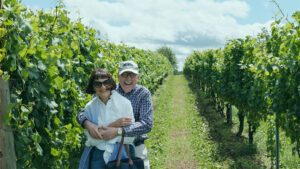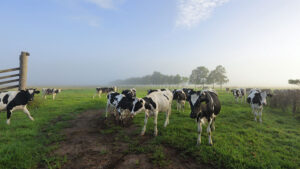When you spend any time in regional Australian towns and conversation turns to the town’s future, there’s a recurring theme. The brain drain.
Historically, there has been one-way traffic of young locals heading to the city. Many go for education. Some go for a job. Few come back.
It’s true of regional kids living in towns. It’s especially true of kids on farms.
Younger generations have been leaving farms in their droves. If you ask them why, here’s what you’re likely to hear.
“To be honest, we had drought for seven years. The farm just couldn’t support us all. It was time for me to sand on my own.”
“I looked at my parents. Fourteen hour days, no holiday in twenty years, exhausted. It wasn’t the life I wanted.”
“Dad’s always done things the way he’s done them. I thought if he won’t change, I have to.”
And so, there’s this history of a smart country-born generation moving to cities, never returning. Their knowledge, their entrepreneurship gone for good.
For years, the average age of our farmers crept up each year. In 2017, Australian Bureau of Statistics showed that the median age of farmers was 57.
With nobody to take over the farm, many properties that have been in families for generations are sold. Intimate local knowledge walks off the land.
At least, that’s the way things used to be.
But there’s a powerful groundswell taking place. The average age of people on our farms is falling. It’s now 49.
Younger tech savvy people are returning to the country with new ideas. As older farmers retire, this new generation is reshaping agriculture.
There’s another shift taking place. Farming had always been male dominated. (In fact before 1994, women could not legally list their occupation as farmer.)
Today there are more young women running farms. Some are first generation farmers. Many are returning to their roots.
This new breed has an interest in sustainable and regenerative farming practices. This has coincided with a consumer shift. People want a connection with farmers. They want to know the provenance of their food. They use phrases like paddock-to-plate. They’re conscious of how far food travels.
These young farmers connect with consumers via farmers markets. They interact via social media. They support each other via groups like Young Farmers Connect and Future Farmers Network. They create their own brands and sell direct to their customers.
If there has been any positive effect from the COVID-19 pandemic, it has been to hasten the flow of talent from cities to country. Regional populations are starting to rise.
Demand for agricultural land is increasing. The land is being bought by locals. ABS stats show that foreign farm ownership has fallen since 2018.
The future of agriculture in Australia is looking bright, thanks to the energy of this younger generation returning to farms full of entrepreneurial spirit.




